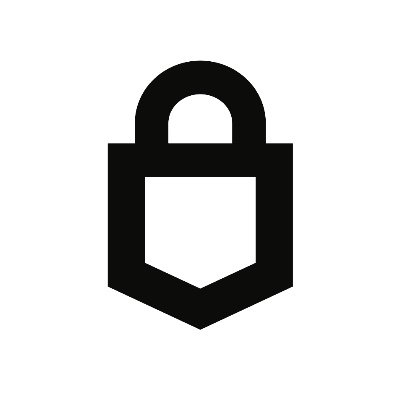In the realm of cryptocurrency, securing one's digital assets is of paramount importance. This article delves into a comprehensive comparison of two of the leading hardware wallet options: Ledger Nano S and Trezor Wallet. We would assess their features, benefits, and potential drawbacks, all to aid you in making an informed investment decision.
|
66
- Bitcoin (BTC), IOTA (MIOTA), Tezos (XTZ), Ethereum Classic (ETC), NEO (NEO), VeChain (VET), Qtum (QTUM), Lisk (LSK), ICON (ICX), Ontology (ONT), Bitcoin Gold (BTG), Zcash (ZEC), Nano (NANO), Wanchain (WAN), Dogecoin (DOGE), Bitcoin Private (BTCP), Waves (WAVES), Zilliqa (ZIL), Decred (DCR), Aeternity (AE), Komodo (KMD), Aion (AION), DigiByte (DGB), Ark (ARK), PIVX (PIVX), Factom (FCT), Elastos (ELA), Zcoin (XZC), Particl (PART), Kin (KIN), Horizen (ZEN), POA Network (POA), GameCredits (GAME), Vertcoin (VTC), Ubiq (UBQ), High Performance Blockchain (HPB), Quantum Resistant Ledger (QRL), Groestlcoin (GRS), Peercoin (PPC), Ripple (XRP), Binance Coin (BNB), Bitcoin Cash (BCH), Bitcoin SV (BSV), Cardano (ADA), Cosmos (ATOM), Dash (DASH), EOS (EOS), Ethereum (ETH), Litecoin (LTC), Monero (XMR), NEM (XEM), Stellar (XLM), Tron (TRX), Polkadot (DOT), BitTorrent (BTT), Terra (LUNA), Crypto.com Coin (CRO), Binance USD (BUSD), Kusama (KSM), Algorand (ALGO), NEAR Protocol (NEAR), Celo (CELO), Energy Web Token (EWT), Hedera Hashgraph (HBAR), Solana (SOL), TomoChain (TOMO)
|
154
- Bitcoin (BTC), Basic Attention Token (BAT), Tezos (XTZ), Ethereum Classic (ETC), OmiseGO (OMG), Qtum (QTUM), Verge (XVG), Lisk (LSK), Ontology (ONT), Bitcoin Gold (BTG), Bytom (BTM), Zcash (ZEC), Populous (PPT), Wanchain (WAN), Dogecoin (DOGE), Bitcoin Private (BTCP), DigixDAO (DGD), Decred (DCR), RChain (RHOC), Aeternity (AE), Status (SNT), Loopring (LRC), Komodo (KMD), Aion (AION), Golem (GNT), IOST (IOST), DigiByte (DGB), Waltonchain (WTC), aelf (ELF), Centrality (CENNZ), Dragonchain (DRGN), Substratum (SUB), QASH (QASH), Veritaseum (VERI), MonaCoin (MONA), Syscoin (SYS), FunFair (FUN), Nebulas (NAS), Nucleus Vision (NCASH), Revain (REV), WAX (WAX), SALT (SALT), MaidSafeCoin (MAID), Power Ledger (POWR), Zcoin (XZC), Storm (STORM), Enigma (ENG), Storj (STORJ), TenX (PAY), Cindicator (CND), Dentacoin (DCN), Particl (PART), Kin (KIN), Civic (CVC), Iconomi (ICN), SmartCash (SMART), SingularityNET (AGI), POA Network (POA), GameCredits (GAME), Dent (DENT), Vertcoin (VTC), Quantstamp (QSP), Gnosis (GNO), iExec RLC (RLC), Decentraland (MANA), Polymath (POLY), Cube (CUBEAUTO), Ubiq (UBQ), Po.et (POE), Loom Network (LOOM), NULS (NULS), Enjin Coin (ENJ), High Performance Blockchain (HPB), Raiden Network Token (RDN), Metal (MTL), Santiment Network Token (SAN), Pundi X (NPXS), Bitcore (BTX), SIRIN LABS Token (SRN), Bluzelle (BLZ), Genesis Vision (GVT), Pillar (PLR), Gifto (GTO), PayPie (PPP), BLOCKv (VEE), Bibox Token (BIX), OST (OST), ETHLend (LEND), IoT Chain (ITC), DATA (DTA), Ripio Credit Network (RCN), SONM (SNM), Quantum Resistant Ledger (QRL), AdEx (ADX), SingularDTV (SNGLS), Eidoo (EDO), UTRUST (UTK), Groestlcoin (GRS), Edgeless (EDG), WePower (WPR), SpankChain (SPANK), CRYPTO20 (C20), Peercoin (PPC), Crypterium (CRPT), Oyster Pearl (PRL), Feathercoin (FTC), AppCoins (APPC), USD Coin (USDC), Ripple (XRP), Binance Coin (BNB), Bitcoin Cash (BCH), Cardano (ADA), Dash (DASH), EOS (EOS), Ethereum (ETH), Litecoin (LTC), Monero (XMR), NEM (XEM), Stellar (XLM), Tether (USDT), Polkadot (DOT), Matic Network (MATIC), Ampleforth (AMPL), xDai (STAKE), Nectar (NEC), Zap (ZAP), Monolith (TKN), Metronome (MET), YAM v1 (YAM), Auctus (AUC), pTokens BTC (PBTC), Compound Ether (CETH), PieDAO BTC++ (BTC++), Compound Basic Attention Token (CBAT), Compound 0x (CZRX), Compound Wrapped BTC (CWBTC), Compound Augur (CREP), Huobi Token (HT), Binance USD (BUSD), NEAR Protocol (NEAR), TrueUSD (TUSD), HUSD (HUSD), Paxos Standard (PAX), Ocean Protocol (OCEAN), Celo (CELO), Energy Web Token (EWT), Quant (QNT), SwissBorg (CHSB), IoTeX (IOTX), RSK Infrastructure Framework (RIF), TomoChain (TOMO), Uquid Coin (UQC), Unibright (UBT), Fantom (FTM)
|
| Sobre |
Ledger Nano S Wallet es una billetera de hardware, un producto insignia de la compañía Ledger, que ha estado en la industria desde 2014. Se vendieron más de 1,5 millones de unidades en todo el mundo.
|
Trezor es un dispositivo sin conexión utilizado para almacenar claves privadas criptográficas. Trezor es una de las principales carteras de hardware seguras y funciona en Windows 8+, macOS, Android y Linux. Se conecta a un puerto USB de su computadora a través de un cable.
|
| Fecha de creación |
Fecha de creación
2019
|
Fecha de creación
2013
|
| País |
País
France
|
País
International
|
| Idiomas |
Idiomas
English, Japanese, French, Spanish, Korean, Chinese, Romanian
|
Idiomas
English, Japanese, Portuguese, German, French, Spanish, Greek, Russian, Traditional Chinese, Simplified Chinese, Dutch, Indonesian, Polish, Czech, Ukrainian, Bengali
|
| Tipo de cartera |
Tipo de cartera
Hardware wallet
|
Tipo de cartera
Hardware wallet
|
| Tipo de almacenamiento |
Tipo de almacenamiento
Cold wallet
|
Tipo de almacenamiento
Cold wallet
|
| Claves privadas |
Claves privadas
Disponible
|
Claves privadas
Disponible
|
| Monedas disponibles |
Monedas disponibles
66
- Bitcoin (BTC), IOTA (MIOTA), Tezos (XTZ), Ethereum Classic (ETC), NEO (NEO), VeChain (VET), Qtum (QTUM), Lisk (LSK), ICON (ICX), Ontology (ONT), Bitcoin Gold (BTG), Zcash (ZEC), Nano (NANO), Wanchain (WAN), Dogecoin (DOGE), Bitcoin Private (BTCP), Waves (WAVES), Zilliqa (ZIL), Decred (DCR), Aeternity (AE), Komodo (KMD), Aion (AION), DigiByte (DGB), Ark (ARK), PIVX (PIVX), Factom (FCT), Elastos (ELA), Zcoin (XZC), Particl (PART), Kin (KIN), Horizen (ZEN), POA Network (POA), GameCredits (GAME), Vertcoin (VTC), Ubiq (UBQ), High Performance Blockchain (HPB), Quantum Resistant Ledger (QRL), Groestlcoin (GRS), Peercoin (PPC), Ripple (XRP), Binance Coin (BNB), Bitcoin Cash (BCH), Bitcoin SV (BSV), Cardano (ADA), Cosmos (ATOM), Dash (DASH), EOS (EOS), Ethereum (ETH), Litecoin (LTC), Monero (XMR), NEM (XEM), Stellar (XLM), Tron (TRX), Polkadot (DOT), BitTorrent (BTT), Terra (LUNA), Crypto.com Coin (CRO), Binance USD (BUSD), Kusama (KSM), Algorand (ALGO), NEAR Protocol (NEAR), Celo (CELO), Energy Web Token (EWT), Hedera Hashgraph (HBAR), Solana (SOL), TomoChain (TOMO)
|
Monedas disponibles
154
- Bitcoin (BTC), Basic Attention Token (BAT), Tezos (XTZ), Ethereum Classic (ETC), OmiseGO (OMG), Qtum (QTUM), Verge (XVG), Lisk (LSK), Ontology (ONT), Bitcoin Gold (BTG), Bytom (BTM), Zcash (ZEC), Populous (PPT), Wanchain (WAN), Dogecoin (DOGE), Bitcoin Private (BTCP), DigixDAO (DGD), Decred (DCR), RChain (RHOC), Aeternity (AE), Status (SNT), Loopring (LRC), Komodo (KMD), Aion (AION), Golem (GNT), IOST (IOST), DigiByte (DGB), Waltonchain (WTC), aelf (ELF), Centrality (CENNZ), Dragonchain (DRGN), Substratum (SUB), QASH (QASH), Veritaseum (VERI), MonaCoin (MONA), Syscoin (SYS), FunFair (FUN), Nebulas (NAS), Nucleus Vision (NCASH), Revain (REV), WAX (WAX), SALT (SALT), MaidSafeCoin (MAID), Power Ledger (POWR), Zcoin (XZC), Storm (STORM), Enigma (ENG), Storj (STORJ), TenX (PAY), Cindicator (CND), Dentacoin (DCN), Particl (PART), Kin (KIN), Civic (CVC), Iconomi (ICN), SmartCash (SMART), SingularityNET (AGI), POA Network (POA), GameCredits (GAME), Dent (DENT), Vertcoin (VTC), Quantstamp (QSP), Gnosis (GNO), iExec RLC (RLC), Decentraland (MANA), Polymath (POLY), Cube (CUBEAUTO), Ubiq (UBQ), Po.et (POE), Loom Network (LOOM), NULS (NULS), Enjin Coin (ENJ), High Performance Blockchain (HPB), Raiden Network Token (RDN), Metal (MTL), Santiment Network Token (SAN), Pundi X (NPXS), Bitcore (BTX), SIRIN LABS Token (SRN), Bluzelle (BLZ), Genesis Vision (GVT), Pillar (PLR), Gifto (GTO), PayPie (PPP), BLOCKv (VEE), Bibox Token (BIX), OST (OST), ETHLend (LEND), IoT Chain (ITC), DATA (DTA), Ripio Credit Network (RCN), SONM (SNM), Quantum Resistant Ledger (QRL), AdEx (ADX), SingularDTV (SNGLS), Eidoo (EDO), UTRUST (UTK), Groestlcoin (GRS), Edgeless (EDG), WePower (WPR), SpankChain (SPANK), CRYPTO20 (C20), Peercoin (PPC), Crypterium (CRPT), Oyster Pearl (PRL), Feathercoin (FTC), AppCoins (APPC), USD Coin (USDC), Ripple (XRP), Binance Coin (BNB), Bitcoin Cash (BCH), Cardano (ADA), Dash (DASH), EOS (EOS), Ethereum (ETH), Litecoin (LTC), Monero (XMR), NEM (XEM), Stellar (XLM), Tether (USDT), Polkadot (DOT), Matic Network (MATIC), Ampleforth (AMPL), xDai (STAKE), Nectar (NEC), Zap (ZAP), Monolith (TKN), Metronome (MET), YAM v1 (YAM), Auctus (AUC), pTokens BTC (PBTC), Compound Ether (CETH), PieDAO BTC++ (BTC++), Compound Basic Attention Token (CBAT), Compound 0x (CZRX), Compound Wrapped BTC (CWBTC), Compound Augur (CREP), Huobi Token (HT), Binance USD (BUSD), NEAR Protocol (NEAR), TrueUSD (TUSD), HUSD (HUSD), Paxos Standard (PAX), Ocean Protocol (OCEAN), Celo (CELO), Energy Web Token (EWT), Quant (QNT), SwissBorg (CHSB), IoTeX (IOTX), RSK Infrastructure Framework (RIF), TomoChain (TOMO), Uquid Coin (UQC), Unibright (UBT), Fantom (FTM)
|
| Seguridad |
Seguridad
Sin datos
|
Seguridad
Personal
|
| Anonimato |
Anonimato
Sin datos
|
Anonimato
High
|
| Facilidad de uso |
Facilidad de uso
Sin datos
|
Facilidad de uso
Average
|
| Tiene tarjeta adjunta |
Tiene tarjeta adjunta
Sin datos
|
Tiene tarjeta adjunta
no
|
| Tiene instalaciones comerciales |
Tiene instalaciones comerciales
Sin datos
|
Tiene instalaciones comerciales
Sin datos
|
| Tiene cupones y ofertas. |
Tiene cupones y ofertas.
Sin datos
|
Tiene cupones y ofertas.
Sin datos
|
| Caracteristicas |
Caracteristicas
Sin datos
|
Caracteristicas
Open Source, 2 Factor Authentication
|
In conclusion, both Ledger Nano S and Trezor Wallet provide robust security measures for cryptocurrency management. While Ledger Nano S excels with its secure element chip and affordable pricing, Trezor Wallet impresses with its user-friendly interface and open-source software. They each have their unique strengths and some minor challenges. Which one to choose depends greatly on individual user preferences and cryptocurrency requirements. So, before making a choice, users need to carefully consider what aspects they value most in a hardware wallet.
In the realm of cryptocurrency, securing one's digital assets is of paramount importance. This article delves into a comprehensive comparison of two of the leading hardware wallet options: Ledger Nano S and Trezor Wallet. We would assess their features, benefits, and potential drawbacks, all to aid you in making an informed investment decision.

